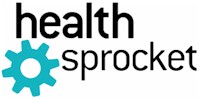Apr
21
Millennials and Healthcare Social Media
Fri, 04/21/2017 - 16:53
A plethora of pieces are published on millennials and healthcare social media, given that millennials are the drivers of social media and with every year they age, healthcare moves up another notch in awareness. Here's a sampling of writings in the past few weeks on this topic:
Benenson Strategy Group surveyed over 1,000 millennials on healthcare They found "of the 86% of millennials with health insurance, 56% get it through avenues expanded by Obamacare, such as individual plans, their parent’s plan or Medicaid. 85% said it’s absolutely essential or very important to have health insurance, ranking it ahead of home Internet, mobile phone data, TV and entertainment.... When asked if they’d rather have better insurance or a 10% pay raise, 51% opted for the insurance while 49% chose the money. Millennials also ranked health insurance first out of nine possible employee benefits."
Benenson concludes that "in spite of being the most connected generation, the Internet is not a healthcare cure-all for millennials. While the vast majority use online healthcare sources to gather information, just 11% of millennials use online research to avoid traditional doctors. It serves as more of a back-up source for them. When they have serious medical issues or questions, 76% reach out to a healthcare provider. What’s more, less than one-third said they trust medical content they find online."
Fortune Magazine's April 13th issue features a piece Does Social Media Influence Millennials' Healthcare Decisions? that has a different take, citing studies supporting that "Millennials, or at the least the youngest segment of that generation see social media as a trustworthy source for medical information," and that "40% of people state that social media impacts provider selection." As a result, they cite that hospitals are increasingly stepping up social media strategies and that "CDC is strongly encouraging members of the healthcare community to use social media as a tool."
James Ryan Jeansonne, Digital Marketing Strategy Manager at OhioHealth and the people at Fathom Healthcare presented a complimentary webinar on ‘Millennials & Healthcare: Using Generation Marketing to Build Social Media Strategy’ with the objective of telling healthcare organizations how engage and retain millennials with a modern, comprehensive digital media plan.
American Sentinel University makes the points in Why Millennial Trends in Healthcare are Important, that :
- They share on social media the brands they like and opening and quickly criticize those they see as having incompatible values.
- Millennials look at health in a broad way, incorporating personal habits, food choices, and a wider definition of health.
- They want transparency, value, and choices.
- Millennials have grown up with the expectation that almost everything can be done in real-time and conveniently online.
This post also appears in the HealthShareTV Blog
- Clive Riddle's blog
- Login to post comments

